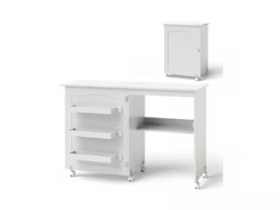Industrial technology has advanced rapidly, transforming how we live and work. Gone are the days of the simple spice and silk trade. It is an extended industrial revolution courtesy of the mind-boggling uses of automation. Machines are now smarter and more efficient, performing complex tasks with precision. Fire-resistant cables enhance safety by preventing electrical fires, which is crucial for modern infrastructure. Connectivity has improved dramatically, allowing seamless communication across devices and locations. Data centers, the backbone of digital services, store and process vast amounts of information securely. These innovations streamline operations, boost productivity, and support global communication networks. From manufacturing to everyday tech, advancements ensure reliability, speed, and safety.
Businesses and individuals benefit from faster, more dependable systems when they explore JJ-LAPP’s resilient solutions as a reliable partner. The integration of their technologies drives progress, making life easier and industries more robust. With continuous development, the future promises even greater efficiency and innovation, shaping a world where technology meets growing demands effortlessly.
Stronger Future: Build Resilience With Better Connectivity
If the madness associated with industrial plants and machinery baffles you with their stats, then you are either unaware, as that’s not your expertise, or you have been sleeping under a rock. Businesses can’t afford to shut down their plants for any time beyond regular maintenance. It’s like a few zillions of working bees swarming across the shop floor to get things done. Manufacturing plants are working around the clock to fulfill large orders and avoid challenges like supply chain delays, natural disasters, and sudden market changes. The key to bouncing back quickly? Strong, reliable connectivity. Advanced digital networks keep operations running smoothly, even during disruptions. Here’s how:
1. Faster Recovery From Supply Chain Delays
When shipments get stuck or suppliers fall behind, every minute counts. With real-time tracking and cloud-based systems, plants can instantly adjust production schedules, switch to backup suppliers, or reroute deliveries, all without costly downtime. Better connectivity means fewer delays and smoother operations.
2. Quick Response To Natural Disasters
Storms, floods, or power outages can shut down production for days. But with smart sensors and remote monitoring, managers can detect problems early, switch to backup power, or even control machines from off-site. Strong networks ensure critical systems stay online, speeding up recovery when disaster strikes.
3. Adapting To Market Shifts
Customer demands change fast; what’s in demand today may not be tomorrow. Connected factories use live data to spot trends early, adjust production lines quickly, and avoid wasted resources. This agility helps businesses stay competitive, even in uncertain markets.
4. Preventing Costly Breakdowns
Unexpected machine failures lead to expensive repairs and lost productivity. With IoT-enabled devices, plants can predict maintenance needs before a breakdown happens. Automated alerts and diagnostics keep equipment running longer, reducing unplanned stoppages.
The Bottom Line
Resilience isn’t just about surviving disruptions—it’s about thriving despite them. By investing in stronger connectivity, businesses gain the speed, flexibility, and insight needed to recover fast and stay ahead. In a world full of uncertainties, a well-connected plant is a stronger, smarter, and more reliable one. The future belongs to those who build resilience today. Is your business ready?







Leave a Reply